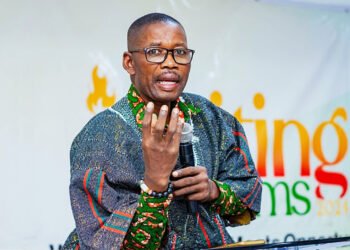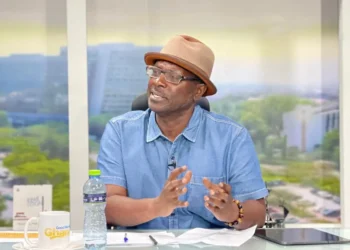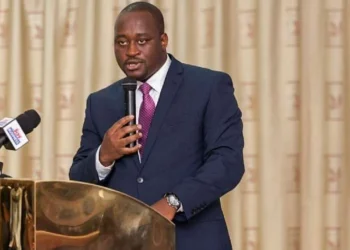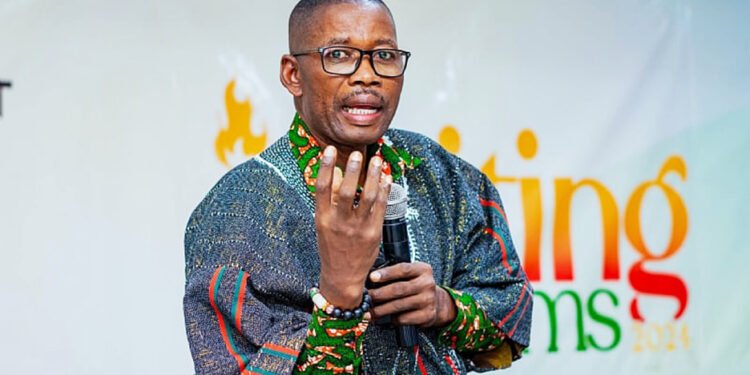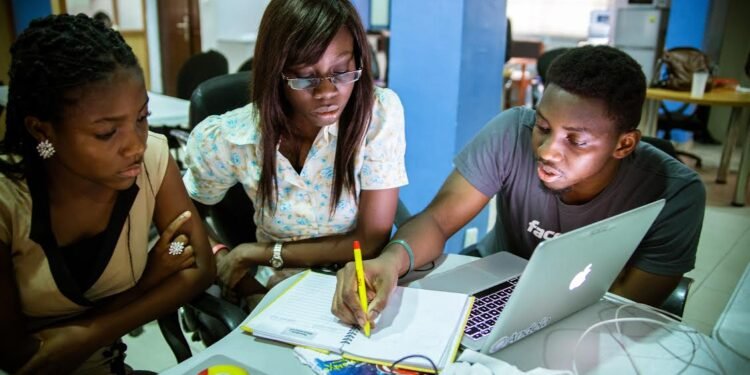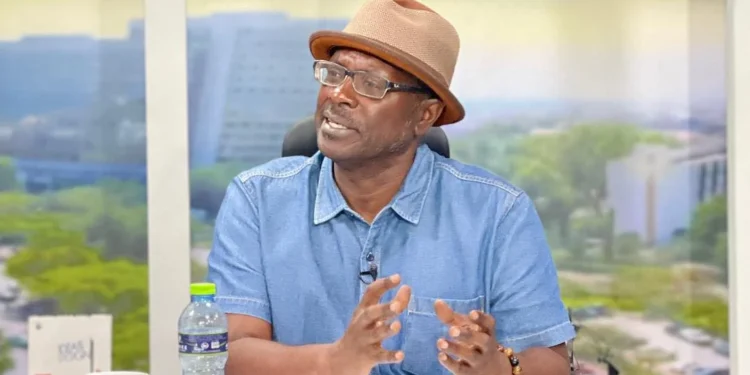The Minister of State in Charge of Government’s Communications, Hon. Felix Kwakye Ofosu, has offered an unequivocal assurance regarding the judicious application of the recently introduced fuel levy.
Recognising the inherent right of citizens to voice their apprehensions, the Presidential Spokesperson firmly articulated the government’s conviction that the levy will be deployed with utmost prudence, serving as a critical financial instrument to fundamentally alleviate Ghana’s most pervasive national challenge: the persistent energy sector crisis.
This bold commitment, he noted, underscores a strategic shift by the Mahama administration to confront a long-standing impediment to national development head-on, promising a definitive resolution for a problem that has plagued the nation for decades.
“For the past eight years, all the NPP did was to kick the can along the road and hope that somebody sees it and picks it up. So they kept on postponing and deferring responsibility until the point where it caught up with us. But it will be remiss on the part of President Mahama and his government if he doesn’t do what is necessary to resolve that problem once.”
Hon. Felix Kwakye Ofosu, Presidential Spokesperson and Minister of State in Charge of Government Communications
According to Hon. Kwakye Ofosu, the administration views it as an imperative to resolve the energy crisis comprehensively and permanently, not merely for immediate relief, but to put the country in a robust and sustainable shape for future generations.

The Minister stressed that a problem afflicting Ghana for over three decades demands decisive action, and making difficult decisions, such as implementing the fuel levy, is a necessary step towards achieving a lasting solution.
Addressing the pertinent concerns regarding the absence of a sunset clause on the fuel levy, Hon. Kwakye Ofosu elucidated the strategic rationale behind this decision.
Pursuit of Cheaper Fuel
He underscored the importance of affording the government “sufficient time and opportunity” to tackle the “super” problem at its most fundamental level. The ultimate objective, he reiterated, is to secure “cheaper fuel” sources.
This long-term vision, Hon. Kwakye Ofosu noted, is critical because the current reliance on expensive fuel imports places an untenable burden on the national treasury.
He revealed that Ghana is compelled to annually expend a staggering $1.2 billion, roughly equivalent to GHS 12 to 13 billion, merely to purchase fuel to generate electricity.
This astronomical sum, he lamented, is diverted from other critical developmental priorities that directly impact the lives of ordinary Ghanaians.
“When we could expend that money on more pressing problems that Ghanaians want addressed. Like with our roads, with water, and with electricity. When you come to Abura Asebu Kwamankese, for instance, we have dilapidated schools that are crying for innovation, that are crying for new facilities.”
Hon. Felix Kwakye Ofosu, Presidential Spokesperson and Minister of State in Charge of Government Communications
More significantly, Hon. Kwakye Ofosu drew a direct parallel between the annual fuel import cost and the budget allocated for the government’s flagship “Big Push Project,” an ambitious infrastructure initiative designed to spur national development.

He further connected this economic drain to the persistent unemployment crisis, noting that despite various programs introduced to address youth unemployment, such as Adwumawura, the National Apprenticeship Program, and the One Million Coders program, a sum of $1.2 billion could make a “huge dent” in the unemployment situation.
The current predicament, where such vast resources are “compelled to use it to buy fuel just to keep the lights on,” was unequivocally labelled as an “unsustainable approach to managing a country.”
Reassuring the public, Hon. Kwakye Ofosu reiterated that the fuel levy is unequivocally an “interim measure.” He referenced President Mahama himself, who, on the very day he signed the bill into law, publicly stated that the levy would not last forever.
This commitment, he noted, stems from the government’s anticipation that the problem will not persist or worsen, given the comprehensive solutions currently being implemented.
New Gas Plant
The ultimate goal, he emphasised, is to transition to a period where cheaper fuel sources become readily available. The Minister offered tangible insights into these ongoing efforts, revealing his involvement on a committee dedicated to the construction of a new gas plant.
He also confirmed that concerted efforts are underway to significantly increase gas inflow from Nigeria and other international sources, alongside active discussions surrounding the viability of Liquefied Natural Gas (LNG) and other cost-effective fuel options.
The strategic imperative, Hon. Kwakye Ofosu concluded, is to reach a point where the acquisition of cheaper fuel directly translates into a natural reduction in energy pricing, aligning with the principle of “automatic divestment.”

At that juncture, Hon. Kwakye Ofosu noted that the fuel levy would naturally be “scrubbed,” having served its interim purpose of stabilising the power sector and facilitating the transition to more sustainable and affordable energy solutions.
In the interim, however, the Presidential Spokesperson appealed to the collective responsibility of Ghanaians to shoulder this temporary burden, recognising it as a shared commitment towards overcoming one of the nation’s most formidable challenges.
The commitment to a future free from energy instability, driven by prudent financial management and strategic energy diversification, he stressed, remains the core promise of the Mahama administration.
READ ALSO: Lands Minister, Chamber of Mines Commit to Responsible Mining





